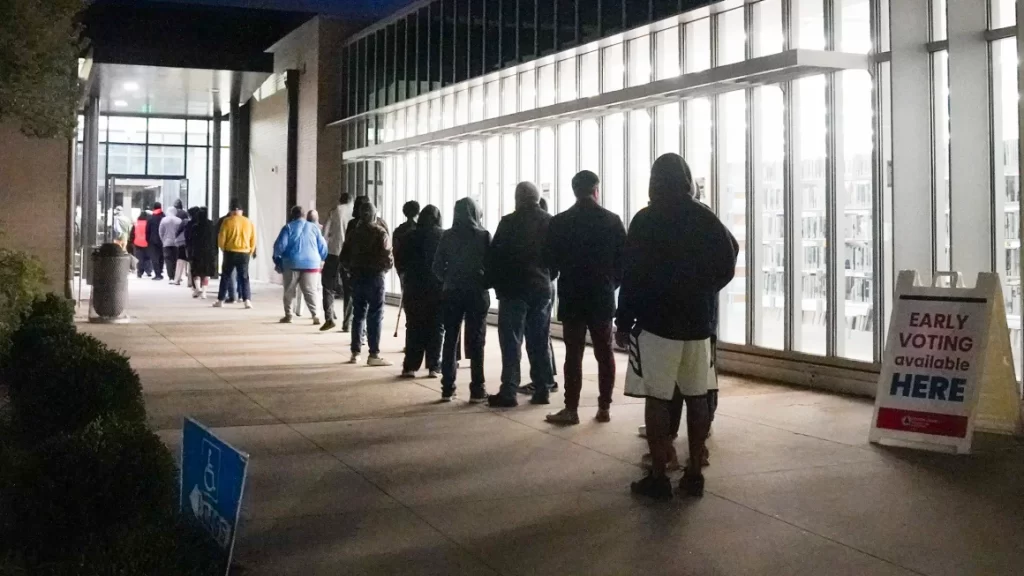State and national Republican officials have filed an appeal against a Georgia judge’s ruling that invalidated a series of contentious election rules. These rules, passed by allies of former President Donald Trump, were criticized by Democrats for potentially causing “chaos” in the state’s electoral process, particularly after Election Day.
The appeal was lodged directly with the Georgia Supreme Court by attorneys representing the Republican National Committee (RNC) and the Georgia Republican Party. This approach allows them to bypass the state’s intermediate court, as the Georgia Supreme Court has the authority to review election-related cases and state constitutional challenges. However, the Supreme Court retains the discretion to reject the direct appeal.
RNC Chairman Michael Whatley expressed strong disapproval of the ruling from Fulton County Superior Court Judge Thomas Cox, labeling it an example of “judicial activism.” In a statement issued Thursday evening, Whatley argued that the judge’s decision undermined rules intended to protect the integrity of Georgia’s elections. He stated, “By overturning the Georgia State Election Board’s commonsense rules, the judge sided with the Democrats in their attacks on transparency, accountability, and the integrity of our elections.”
The judge’s ruling, which came down on Wednesday, struck down seven specific rules instituted by the Georgia State Election Board. Among these was a rule mandating county election officials to conduct a “reasonable inquiry” into election results before certifying them. Another rule that was invalidated would have permitted officials to review all election-related documentation created during the election process prior to certifying results.
In his ruling, Judge Cox declared that these rules were “illegal, unconstitutional, and void,” emphasizing the legal grounds for his decision. His order also rescinded requirements for officials to perform hand counts of the ballots cast at each polling location on Election Day, as well as a rule that expanded the access available to poll watchers.
The implications of this ruling are significant, particularly in a state that has become a focal point in national elections. Georgia, a key battleground state, has been scrutinized for its electoral processes, especially after the contentious 2020 election. The rules in question were designed to enhance scrutiny and oversight of the election process, but opponents argue they could lead to confusion and hinder the timely certification of election results.
Republicans contend that the measures are necessary to ensure election integrity and maintain public confidence in the electoral system. They argue that scrutiny of the election process is essential, particularly in a politically charged environment where accusations of fraud have surfaced. However, Democrats and various election advocacy groups assert that these rules are not only unnecessary but also could create logistical challenges and delay the certification of results, which is crucial for maintaining the orderly conduct of elections.
As the appeal process unfolds, the Georgia Supreme Court’s decision will be closely monitored, as it could set a precedent for future election-related legal battles. The dynamics of this case highlight the ongoing tensions between state election officials and political parties over the rules governing electoral processes.
Should the Georgia Supreme Court choose to hear the appeal, it will likely address key legal questions surrounding election oversight, the balance of power between state agencies and the judiciary, and the role of courts in resolving election disputes. The outcome could have lasting implications for how elections are conducted in Georgia and potentially influence similar cases in other states.
In the meantime, the fallout from this ruling may also impact voter sentiment and public trust in the electoral process, as both parties engage in a broader debate over election integrity and transparency. As the election season progresses, the stakes are high, and the developments in Georgia will be closely watched not only by state residents but by political observers nationwide.








